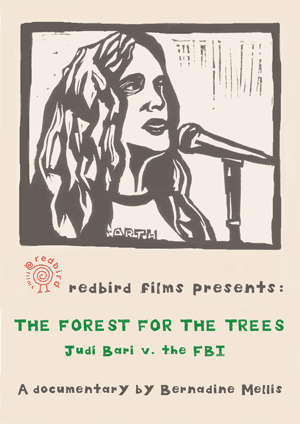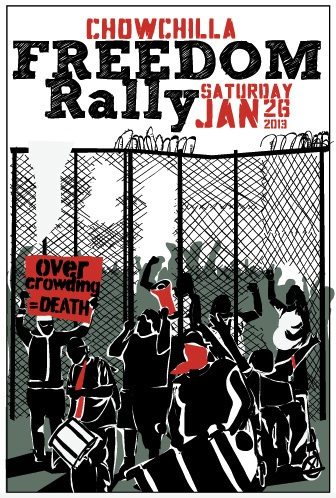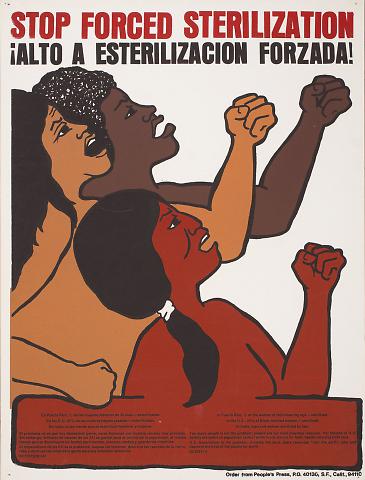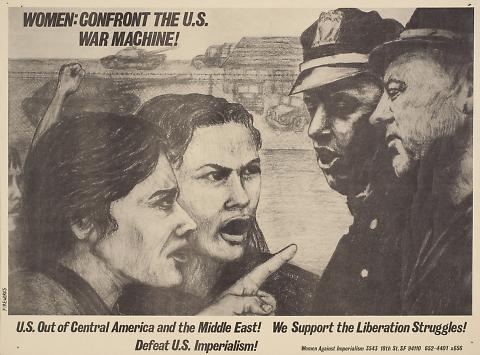Gender and Sexuality
This collection features materials from a number of sources focusing on struggles revolving around gender and sexuality. These struggles are not separate from larger struggles for liberation but specifically incorporate unique voices and perspectives.
Subcollections
-
Connexions
Connexions is the collective product of feminists of diverse nationalities and political perspectives committed to contributing to an international women\'s movement. -
Feminist and Lesbian Politics: Monographs-Periodicals-Articles
This collection contains materials focusing on radical feminist and lesbian politics. While diverse in medium and subject matter, this collection contextualizes women’s liberation highlighting issues of class, race, sexuality and imperialism. -
Materials shot and collected in the making of The Forest for the Trees
Raw materials from the documentary "The Forest for the Trees" which details the amazing story of the fight to clear Earth First! activist Judi Bari's name after her car was bombed and she was arrested as a terrorist. -
Out of Control: Lesbian Committee to Support Women Prisoners
Out of Control (OOC) was a self-supporting committee formed in 1987 to organize resistance to the Lexington Control Unit for women. -
Prisons - Women
This collection contains materials relating to the specific conditions, challenges and struggles facing women in prison. Topics are varied but materials include conference papers, informational materials, legal perspectives and audio recordings. -
Programs produced by Judy Gerber and Laurie Simms
This collection contains grassroots radio programming produced by Judy Gerber and Laurie Simms. This programming primarily occurred during the 1980s and 1990s. -
Sterilization
This collection contains materials focusing on the sterilization of women and efforts to resist this practice. -
Violence Against Women
This collection contains materials focusing on violence against women. Specific topics covered include women who fight back against their abusers, rape, pornography, sexism and self-defense. -
Women Against Imperialism
Women Against Imperialism was a grassroots, feminist, anti-imperialist solidarity organization formed in San Francisco in 1981. Women Against Imperialism’s work primarily consisted of direct action organizing and political education activities.
Documents
2 Documents Found
Date: 10/20/1995Call Number: JG/ 096AFormat: Cass AProducers: Judy GerberProgram: A Defiant HeartCollection: Programs produced by Judy Gerber and Laurie Simms
Focus on Racism. Interview with Judy Siff and Bill Crossman of the Prairie Fire Organizing Committee on their class 'Culture Clash' on the history of white supremacy and its impact on U.S. history. At the occasion of the Million Man March, racism is on the public agenda for the first time in many years. Siff and Crossman note how 1995 has been a remarkable year for
publicity of racism, particularly the Mumia Abu Jamal and Susan Smith cases. They believe that the problem of race in the U.S. transcends racism to root inequality through institutions, including a very central role of the police
and judicial system in promoting white supremacy. They argue that the white perception of reality needs to change, that a new common consciousness must be forged. They note how racism targets many different groups in the U.S., not just Blacks, and how mainstream white society usually turns a blind eye.
Date: 11/3/1995Call Number: JG/ 096BFormat: Cass BProducers: Judy GerberProgram: A Defiant HeartCollection: Programs produced by Judy Gerber and Laurie Simms
Focus on Racism continued. Interview with Judy Siff and Bill Crossman of the Prairie Fire Organizing Committee on their class 'Culture Clash' on the history of white supremacy and its impact on U.S. history. Siff and Crossman
talk about the book 'The Myth of the White Proletariat' that challenges deep myths of White America. According to the book, popular misconceptions regarding race and racism in the U.S. stem historically from the national foundation, particularly notions about who the early settlers were, what the existing native population was like, and who actually benefited from the system of slavery. Siff and Crossman argue that this nation was an empire from the start, seizing and subjugating nations, and that the nation as a whole benefited from slavery. They believe that all white people no matter what social class, has benefited from white supremacy.
2 Documents Found









